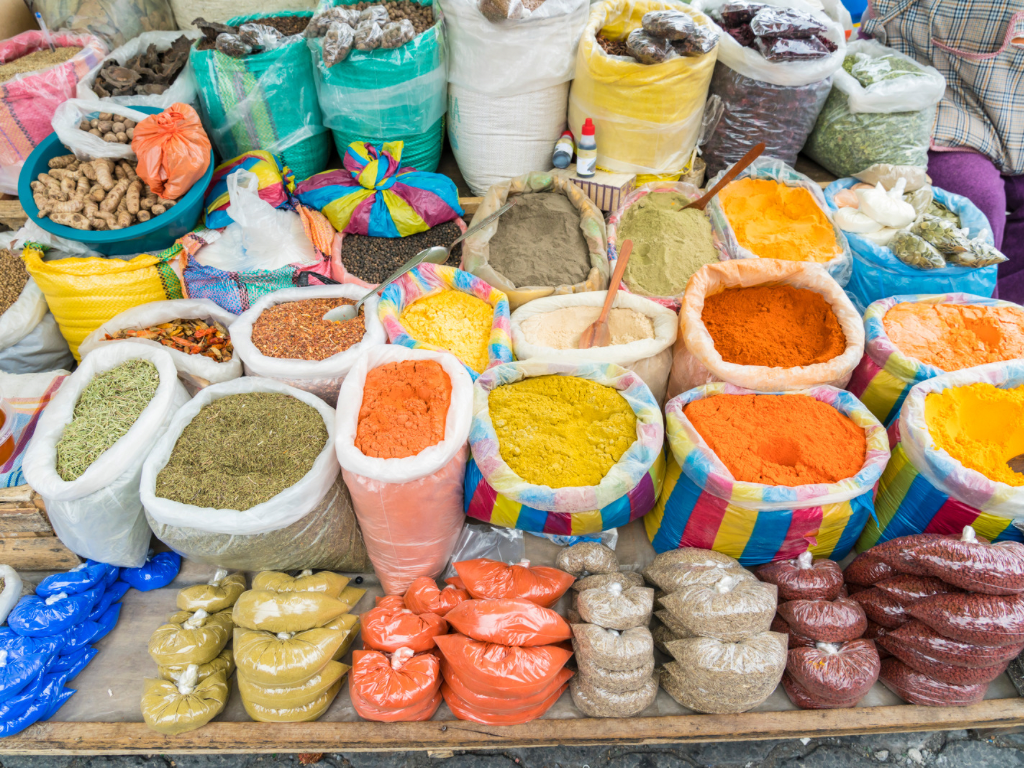Spice trade & Fair trade MOVEMENT
As a chef and food enthusiast, I am fascinated by the way that spices have shaped the course of human history. From ancient times to the present day, the pursuit of flavorful and aromatic ingredients has led to some of the most significant events in world history, including the exploration of new lands, the rise and fall of empires, and the birth of global trade.
Spices have been sought after since ancient times, prized for their flavor and medicinal properties. In fact, the quest for spices played a significant role in the early exploration and settlement of the world. The ancient Egyptians, Greeks, and Romans all traded in spices, and many of the spices that we still use today were first cultivated in these regions.
However, it was the medieval spice trade that really put spices on the map. The spice trade was dominated by the Arabs, who controlled the land routes from the East, and the Venetians, who controlled the sea routes from the West. The trade in spices was so lucrative that it inspired countless explorers to set sail in search of new routes to the East, including Vasco da Gama, Christopher Columbus, and Ferdinand Magellan.
Vasco da Gama’s voyage around the Cape of Good Hope in 1497 opened up a new sea route to the East, breaking the Arab monopoly on the spice trade and opening up new opportunities for European merchants. Christopher Columbus also set out in search of a new route to the East, but instead, he stumbled upon the Americas, leading to the birth of the New World and the start of a new era of global exploration and trade.
The discovery of the New World also brought about the need for new spices, as many of the traditional spices used in Europe were not available in the Americas. This led to the introduction of new spices, such as chili peppers, vanilla, and allspice, which have since become an integral part of the world’s culinary repertoire.
The spice trade also had a significant impact on the economies of the countries involved. The Venetians became incredibly wealthy from the spice trade, and the Dutch East India Company was one of the most powerful companies in the world, controlling vast territories in Asia and Africa. However, the pursuit of wealth and power often came at a great cost, and the exploitation of indigenous peoples and the environment was rampant.
One of the most tragic legacies of the spice trade was the transatlantic slave trade, which was fueled in large part by the need for cheap labor on sugar plantations in the Caribbean. Millions of Africans were forcibly taken from their homes and transported across the Atlantic to work in brutal conditions on plantations that produced sugar, coffee, and other commodities that were in high demand in Europe.
The legacy of slavery is still felt today, and it is important to acknowledge the role that the spice trade played in this dark chapter of human history. The pursuit of wealth and power often comes at a great cost, and it is up to us to ensure that the trade in spices and other commodities is fair, just, and sustainable.
As the spice trade grew, so did the wealth and power of the European empires that controlled it. The British, Dutch, French, and Portuguese established colonies across the globe to secure their access to the lucrative trade, leading to centuries of exploitation, violence, and cultural assimilation. In many cases, the demand for spices drove the colonization of entire continents, such as Africa and Asia.
But the spice trade wasn't just about power and wealth. It also had a profound impact on culinary traditions around the world. Spices like pepper, cinnamon, nutmeg, and cloves became popular ingredients in European kitchens, while chili peppers transformed the cuisine of the Americas and Asia. The blending of different culinary traditions, brought about by the spice trade, led to the creation of new dishes and flavors that continue to delight and inspire us today.
Fortunately, today there are organizations like Fair Trade that are working to ensure that the farmers and workers who produce the spices we love are treated fairly and receive a fair share of the profits. By buying Fair Trade products, we can support these efforts and help to create a more just and equitable world.
Despite these grim realities, the spice trade played a crucial role in shaping the world we live in today and influencing the way we eat, cook, and live. It fueled the growth of empires, led to the creation of new culinary traditions, and facilitated cultural exchange and interaction between different parts of the world. Even today, as we enjoy the flavors and aromas of spices from all corners of the globe, we are reminded of the rich history and complex legacy of this ancient trade.
As we continue to explore new flavors and ingredients, it is important to remember the rich history and cultural significance of spices and to honor the farmers and workers who produce them. By doing so, we can create a world that is more just, equitable, and delicious.
Learn more about Fair trade https://wfto.com





